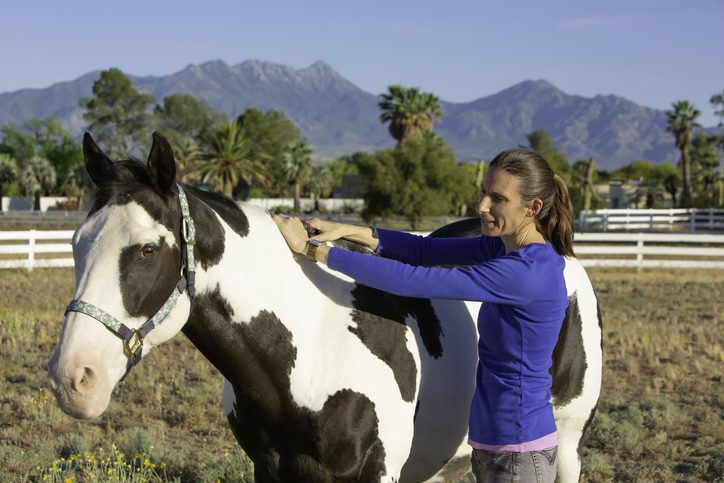Equine therapy, also known as equine-assisted therapy and horse therapy, is a powerful and increasingly popular form of experiential therapy for individuals struggling with drug and alcohol addiction. This unique approach utilizes horses to promote physical, emotional, and psychological healing. Unlike traditional forms of therapy that take place in an office environment, equine therapy happens outdoors, allowing individuals to connect with nature while experiencing the therapeutic benefits of interacting with horses.
What is Equine Therapy for Addiction Recovery?
Equine therapy involves activities like petting, grooming, feeding, haltering, and leading the horse, as well as more advanced activities like therapeutic riding or carriage driving. The goal is to build a relationship and bond with the horse, which can foster a sense of trust, self-awareness, and emotional regulation. All equine therapy sessions take place with a therapist and horse handler present.
Biomedcentral describes the therapist-client-horse relationship as a therapeutic triad that prompts specific behaviors that help a client understand their internal experiences and struggles. Horses have a very sharp sensitivity and awareness of nonverbal communication and, by facilitating personal exploration, they can provide context for the therapist to help interpret the person’s difficulties.
The Bond Between Humans and Horses
Horses have an innate ability to sense and mirror human emotions, allowing them to become powerful partners in the healing process. For example, if the person is quiet and shy, the horse will be quiet and shy. If the person is friendly and full of energy, the horse will be too. A horse is so in tune with a person that it can actually hear and synchronize its heartbeat to a person four feet away.
The bond between humans and horses in equine therapy is based on trust, empathy, and non-judgmental acceptance. Horses are highly perceptive animals, capable of detecting subtle changes in our energy and emotional state. They can sense when we are feeling anxious, stressed, or disconnected. This unique ability allows them to provide immediate and honest feedback, reflecting back to us our emotional states.
For those struggling with addiction, this feedback can be invaluable in gaining self-awareness and understanding the impact of their actions on themselves and others. Through equine therapy, individuals can experience a level of connection and understanding that is often difficult to establish in traditional forms of therapy. The horses serve as trusted companions and guides, offering a safe space for individuals to explore their emotions, behaviors, and patterns.
Equine Therapy Fosters Essential Skills
Through interacting with horses, individuals in addiction recovery learn valuable skills such as communication, assertiveness, and boundary-setting. Horses respond to clear and consistent signals, rewarding individuals with trust and cooperation when they effectively communicate their needs. This process can be life-changing as individuals begin to understand the power of healthy boundaries and effective communication in their relationships.
Working with horses requires individuals to engage in activities such as grooming, feeding, and leading, which provide a sense of purpose, responsibility, and accomplishment. These physical tasks help individuals rebuild their self-esteem, develop a sense of competence, and establish a routine that is vital to their recovery journey.
In addiction recovery, it is crucial to avoid isolation and establish positive relationships and support systems. Engaging in unhealthy relationships or secluding oneself can lead to relapse. Equine therapy can teach individuals in recovery the importance of responsibility and healthy relationships. By caring for the needs of the horse, the person learns the significance of accepting responsibility, following guidelines, establishing routines, practicing patience, and developing a sense of pride.
Moreover, equine therapy can also help alleviate feelings of vulnerability common among those struggling with addiction or co-occurring disorders such as anxiety and addiction. Interacting with horses helps individuals step out of their comfort zones, conquer their fears, and overcome challenges in a safe environment. By processing these experiences and sharing their thoughts with a therapist, they can reduce their sense of vulnerability and gain new insights into their own recovery journey.
Do Not Struggle Alone
If you or someone you care about is struggling with addiction to drugs or alcohol, it is important to know that help is available. At Canyon Vista Recovery Center in Mesa, Arizona, our experienced professionals are dedicated to helping you on your path to recovery. Using a combination of medical, clinical, psychiatric, and holistic methods, you will develop new life skills and work towards healing the damage caused by addiction. In addition to equine therapy, our services include family healing, nutritional therapy, 12-step recovery, and ongoing support.










